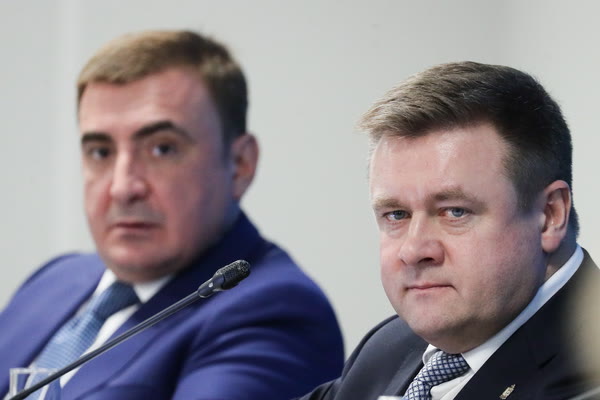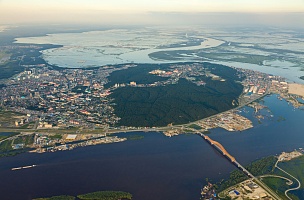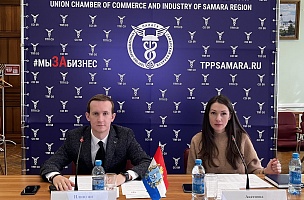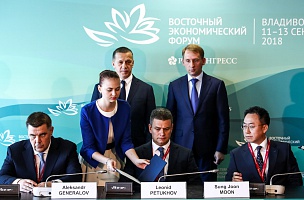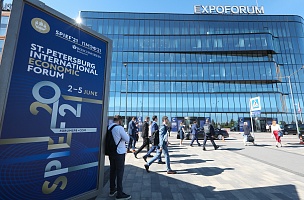KEY CONCLUSIONS
Innovative Science and Technology Centres [ISTC] are a hub for integrating the science and education environment into the real economy
«ISTC create close ties between scientific organizations, universities, and the real economy. We have a limited amount of these connections, but we need to take it to a new level,» Maxim Oreshkin, Minister of Economic Development of the Russian Federation.
«The transfer of technologies is the transfer of knowledge, the transfer of ideas into the real economy. We’re creating the rails upon which ideas will later travel,» Oleg Teplov, Chief Executive Officer, VEB Innovation.
ISTCs don’t put additional strain on the budget
«There is no money from the budget that will need to be spent on ISTCs. This is not a tool for expanding spending limits,» Mikhail Kotyukov, Minister of Science and Higher Education of the Russian Federation.
Legislative regulation of the ISTC sector will help remove many barriers to doing research
«The ‘tech valley’ legislation gives us the opportunity to remove barriers in parts of the technical regulations, medical regulations, and in some places, unfortunately, ethical regulations. But it is high time that we reach this point, we can’t allow ourselves to fall behind,» Anton Alikhanov, Governor of Kaliningrad Region.
«The 2017 legislation gives young scientists the opportunity to take advantage of the benefits and available infrastructure of high tech centres. It creates a systematic approach that did not previously exist,» Alexey Dumin, Governor of Tula Region.
Regions consider the ISTCs a development mechanism
«We defined our focus as ‘humantech’ — medical technologies, biotechnologies, everyday uses for new materials,» Anton Alikhanov, Governor of Kaliningrad Region.
«ISTCs are a serious point of growth that can help a region go digital, and the digital sector may then become one of the driving forces of that region’s economy,» Nikolay Lubimov, Governor of Ryazan Region.
Russian industry is in dire need of modern technologies
«After America stopped being a supplier, composite materials became critically vital to making sure that our airplanes continue to meet modern requirements,» Yuri Slyusar, President, United Aircraft Corporation (UAC).
PROBLEMS
Insufficient government support for startups
«Startups have our own product line. As a rule, this means 75% guaranteed coverage. This sharing of risks lowers the interest rate by 2 to 4%. We can’t boast of large sums of money. Last year it was just 2 billion RUB,» Alexander Braverman, General Director, Chairman of the Board, Russian Small and Medium Business Corporation.
SOLUTIONS
The government must plan and form infrastructure for creating new technologies
«There needs to be government planning. Tools made of metal and aluminum will be things of the past, there will be new materials, eternal ones, that don’t need to be serviced. In New Zealand they’re already building 60% of agricultural combines out of composite materials. This is the future and we must create the appropriate business structures,» Alexey Dumin, Governor of Tula Region.
«ISTCs need to have four things: investors, innovators, industry, and researchers. If you have all of these components, they cross pollinate and you see a growing, synergetic effect,» Natalya Popova, First Deputy General Director, Innopraktika.
There needs to be a new approach to education
«ISTCs can’t work without ties to educational institutions. This means a new type of education, focused on real economic demands. For defense enterprises, this is an opportunity to take their manufacturing of civil products to a new, higher level,» Nikolay Lubimov, Governor of Ryazan Region.
«We’ve created a huge regional infrastructure. And you and I will soon see that, in those places where ISTCs are being created, there is very strong networking being done with talented schoolchildren,» Elena Shmeleva, Head, Talent and Success Foundation; Member of the Presidential Council for Science and Education.
«Higher education needs to start integrating into the business community. This is especially important for technological universities,» Alexander Mazhuga, Rector, Dmitry Mendeleev University of Chemical Technology of Russia.


